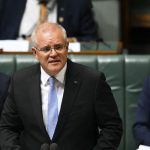The end of democracy?

Governments have often regulated to ensure competitive behaviour. Legislation to mandate a fair price can be traced back to the corn market in Roman times. By 1900 Standard Oil controlled over 90% of the petroleum market in the United States. In 1911 Standard Oil was broken up into 34 smaller companies. Big Tobacco and Big Telecom were also forced to break up at the same time in 1911. Recently, the European Commission had some success with anti-competitive behaviour in the technology area, fining Google $2.7 billion for unfair competition.
Part of the wealth of these companies comes from their unwillingness to pay their fair share of taxes. In 2017 the European Commission found that they paid on average about 0.005% in tax compared with the usual 12.5% in Ireland.
It has been estimated that by 2062 leaders of technology companies will be important political figures. In 2017 Mark Zuckerberg hired the chief strategist of Hilary Clinton’s 2016 presidential campaign. Many Americans have expressed concern over someone like him obtaining high public office – unrestricted access to social media platforms like Facebook coupled with virtually unlimited funds offer immense advantages to a candidate in an election.
We could finish up with the winner being the one with the best algorithms, enabling micro-targeting consumers and the best data as opposed to having the best ideas for the country. Most countries have placed limits on the amount which can be spent on an election campaign but do not control the use of data, algorithms, or AI.
Lobbying is another area which needs to be looked at in the 2000’s. In 2017 Google spent $18 million on this activity, Facebook $11.5, Amazon $12.8, and Apple $7. These companies would not spend these amounts if they did not expect a reasonable return. There is nothing wrong with lobbying – it is open to anyone with a reasonable idea to present to their member of parliament. However, with large companies virtually taking up the MP’s time, the little man is at a great disadvantage.
The rise of the internet has meant that many people are now getting a lot or even most of their news in free downloads. Advertising has also shifted from newspapers, radio, and TV. This means that the media no longer has the capital to fact check data properly or to keep reporters in all the interesting places of the world; it relies more on the ‘facts’ put out by the public relations offices of large companies and political regimes. These, naturally focus on the positive aspects of their operations while using spin doctors when necessary.
One of the most complex acts of parliament in tax law and it is this which needs to be completely revised in the very near future. Because of the prevalence of the world wide web this has to be achieved via international cooperation – to make multinationals pay their fair share of tax in the countries where the profit is made.
Internet providers must also be made to pay for the news they have taken from the media. Every country should also have an independent national broadcaster with enough funding to use its own staff in order to get the news of the world. The multinationals should be scrutinised with the concept of being broken up into smaller entities. Without these actions being taken I believe democracy itself is at risk of disappearing.
Advertisers and psychologists have known for years that it is not difficult to get people to act in certain ways with the correct nudges. Social media have given the wealthy an ideal opportunity to exploit that. Children should be taught how to notice ‘fake news’ and psychological manipulation so they can react logically – if something they seen on the internet looks a bit ‘iffy’ then double check via another source. It’s not difficult but does require a conscious effort.
China is rapidly becoming a major force in world politics. The Chinese people have for generations been subject to the will of the ruling party, whether internal or foreign so are used to being controlled. In 2017 the State Council of China issued a New Generation AI Development Plan designed to use AI to gain economic and military dominance over the rest of the world.
President Xi Jinping reported to the Party Congress in October of that year that China aims to become a science and technological superpower and to use AI to control its own citizens in order to effectively maintain social stability. Although this control appears to be breaking down at the moment the idea of a foreign force dominating a democratic Western country through the use of AI is daunting to say the least.

Alan Stevenson spent four years in the Royal Australian Navy; four years at a seminary in Brisbane and the rest of his life in computers as an operator, programmer and systems analyst. His interests include popular science, travel, philosophy and writing for Open Forum.















